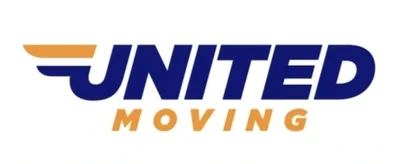Welcome to our article on the importance of moving coordination and how it can lead to a smooth and stress-free relocation. Whether you’re moving across town or across the country, teamwork and being on the same page are essential for a successful transition to your new home. In this article, we’ll provide valuable tips and insights for mastering moving coordination to ensure your relocation goes seamlessly.
Key Takeaways:
- Moving coordination is crucial for a successful relocation.
- Teamwork and effective communication are essential elements of moving coordination.
- Following tips and strategies can help streamline the moving process.
- Real-life case studies provide valuable insights into successful moving coordination.
- Professional moving coordinators can offer expertise and assistance.
Understanding the Role of Moving Coordination
Moving coordination is a critical aspect of any relocation. It involves meticulously organizing and managing various elements of your move, including packing, logistics, and ensuring everyone involved understands their responsibilities. By comprehending the significance of moving coordination, you can better prepare for a successful and seamless transition to your new home.
Effective moving coordination requires careful planning and attention to detail. From selecting the right moving company to coordinating schedules, every aspect plays a crucial role in ensuring a smooth relocation. By investing time and effort into this process, you can minimize stress and potential disruptions during your move.
“Moving coordination ensures a seamless transition to your new home.”
“Moving coordination involves organizing and managing all aspects of your move, from packing to logistics.”
During the moving coordination process, you will need to communicate with various service providers, such as movers, utility companies, and transportation services. Clear and effective communication is essential to ensure that everyone is on the same page and understands their roles and responsibilities.
By having a clear understanding of the role of moving coordination, you can establish a solid foundation for a successful move. Being organized, proactive, and detail-oriented will help you navigate the complexities of the moving process with ease.
Keep reading to discover the benefits of effective teamwork during relocation in Section 3.

The Benefits of Effective Teamwork
When it comes to relocating, effective teamwork is essential for smooth moving coordination. By working together towards a common goal and ensuring everyone is on the same page, you can experience a more efficient and successful move. Let’s explore the various benefits of teamwork during the relocation process.
“Teamwork is the ability to work together toward a common vision. The ability to direct individual accomplishments toward organizational objectives. It is the fuel that allows common people to attain uncommon results.” – Andrew Carnegie
Improved Efficiency
When every member of the team understands their role and collaborates effectively, the relocation process becomes more streamlined. Tasks can be completed in a timely manner, minimizing delays and ensuring a smooth transition to your new home.
Shared Responsibilities
By distributing responsibilities among team members, the burden of packing, organizing, and logistics is shared. This not only lightens the load for individuals but also allows each person to focus on their specific expertise, maximizing their contributions to the move.
Enhanced Communication
Teamwork promotes open and constant communication. From discussing logistics to sharing updates and addressing concerns, effective communication ensures that everyone is informed and working together towards a common goal.
Motivation and Support
Working as a team provides motivation and support during the relocation process. Encouraging and helping one another through the challenges and tasks involved boosts morale and creates a positive atmosphere, making the entire experience more pleasant and enjoyable.
Problem-Solving Abilities
When facing obstacles or unexpected situations, a strong team can pool their collective knowledge and experience to come up with creative solutions. By working collaboratively, challenges can be overcome more efficiently, minimizing stress and ensuring a successful move.
Effective teamwork is not only crucial for moving coordination but also builds stronger relationships and fosters a sense of camaraderie among team members. By recognizing the benefits of working together in relocation, you can harness the power of teamwork to create a smooth and successful transition to your new home.

| Benefits of Effective Teamwork |
|---|
| Improved Efficiency |
| Shared Responsibilities |
| Enhanced Communication |
| Motivation and Support |
| Problem-Solving Abilities |
Essential Tips for Successful Moving Coordination
When it comes to moving coordination, following the right tips and strategies is essential for a seamless transition to your new home. In this section, we will share practical advice to help you coordinate your move effectively and avoid unnecessary stress.
Create a Detailed Timeline
One of the first steps in successful moving coordination is creating a detailed timeline. Outline all the tasks that need to be completed before, during, and after the move. This will help you stay organized and ensure that nothing falls through the cracks.
Assign Clear Responsibilities
Assigning clear responsibilities to each member of your team will streamline the moving process. Clearly communicate who is responsible for packing, organizing documents, coordinating with service providers, and any other tasks related to the move. This will prevent confusion and ensure that everyone knows what they need to do.
Communicate Regularly
Effective communication is key to successful moving coordination. Regularly touch base with your team members and service providers to keep everyone updated on the progress of the move. This will help address any issues or concerns that may arise and ensure that everyone is on the same page.
Label Boxes and Create an Inventory
To make unpacking easier, label each box with its contents and the room it belongs to. Creating an inventory of your belongings will also help keep track of everything during the move. This way, you can quickly locate specific items once you’re in your new home.
Consider Hiring Professional Movers
If your budget allows, consider hiring professional movers to handle the logistics of your move. They have the expertise and equipment necessary to ensure a smooth relocation. Research reputable moving companies and compare quotes to find the best option for your needs.
Stay Organized with Moving Apps
Take advantage of moving coordination apps to stay organized throughout the process. These apps can help you create checklists, set reminders, and keep track of important documents. Some popular moving apps include MoveAdvisor, Sortly, and MoveMatch.
“Moving coordination requires careful planning and organization. By following these essential tips, you can ensure a smooth and stress-free transition to your new home.”
By implementing these essential tips and strategies, you can master the art of moving coordination and experience a successful and hassle-free move to your new home.
Case Studies: Real-Life Examples of Moving Coordination
Examining real-life case studies can provide valuable insights into effective moving coordination. In this section, we will explore specific examples of successful moves where strong coordination played a pivotal role. By learning from these experiences, you can apply similar strategies to your own relocation.
“Moving coordination is a crucial element in ensuring a successful and stress-free relocation. Let’s take a look at some inspiring case studies that demonstrate the power of effective coordination.”
Case Study 1: John and Lisa’s Cross-Country Move
John and Lisa were moving from New York to Los Angeles due to a job transfer. They had a limited budget and a tight deadline. To ensure a smooth transition, they created a detailed moving plan and assigned specific tasks to each member of their team. They also hired a professional moving company that had experience with long-distance moves.
| Tasks | Assigned To |
|---|---|
| Packing and labeling | John and Lisa |
| Arranging transportation | Moving company |
| Utilities transfer | Lisa |
| Address change notifications | John |

“Through effective communication and coordination, John and Lisa successfully completed their cross-country move within their desired timeframe, all while staying within their budget.”
Case Study 2: David and Sarah’s International Move
David and Sarah were relocating from the United States to the United Kingdom for a job opportunity. They faced the challenge of navigating through customs and ensuring the safe arrival of their belongings. To overcome these hurdles, they collaborated with an international moving company that provided expert guidance on customs regulations and handled the logistics of the move.
| Challenges | Solution |
|---|---|
| Customs regulations | International moving company expertise |
| Logistics coordination | International moving company coordination |
“By leveraging the expertise of the international moving company, David and Sarah successfully navigated the complexities of an international move, allowing for a smooth transition to their new home in the United Kingdom.”
In conclusion, these case studies highlight the importance of effective moving coordination in achieving successful relocations. By learning from the experiences of others, you can optimize your own moving process and ensure a seamless transition to your new home.
Maximizing Communication Channels
Effective communication is key to moving coordination. When it comes to relocating, staying in touch with your team and service providers is crucial for a seamless transition. In this section, we will explore different communication channels and provide tips on how to ensure clear and efficient communication throughout the moving process.
1. Emails: Emails are a popular and convenient way to communicate during a move. They allow you to exchange important documents, share updates, and keep everyone informed. Make sure to check your emails regularly and respond promptly to ensure smooth communication.
2. Phone Calls: When you need to have a real-time conversation or discuss important details, phone calls are the way to go. They offer a more personal touch and allow for immediate clarification. Keep a phone directory handy with all the necessary contact numbers to stay connected with your team and service providers.
3. Messaging Apps: Messaging apps like WhatsApp and Slack can be great for quick and informal communication. They provide a platform for instant messaging, file sharing, and group chats, making it easy to stay connected with your team, even on the go.
4. Video Conferencing: For meetings, discussions, or virtual walk-throughs of your new space, video conferencing tools like Zoom and Microsoft Teams can be invaluable. They allow you to have face-to-face conversations regardless of your physical location, fostering collaboration and clarity.
In addition to these communication channels, it’s important to establish a clear line of communication with your service providers. Whether it’s your moving company, utility providers, or real estate agents, make sure you have their contact information readily available and establish the preferred mode of communication.
Remember: Effective communication is a two-way street. Be proactive in reaching out to your team and service providers and also encourage them to communicate openly with you. Creating a culture of open communication will contribute to a successful moving coordination process.

Throughout the moving process, utilize the appropriate communication channels to keep everyone informed and ensure a smooth relocation. By optimizing communication, you can address any issues promptly, make necessary adjustments, and ultimately enjoy a stress-free move.
Anticipating Challenges and Problem-Solving
Moving coordination can present various challenges and unexpected issues along the way. It is crucial to be prepared and equipped with problem-solving strategies to ensure a smooth relocation process. In this section, we will explore key approaches to overcoming obstacles and navigating common hurdles that may arise during your move.
Problem-Solving Strategies
- Stay organized: Create a detailed moving checklist to keep track of tasks and deadlines. This will help you proactively address potential challenges.
- Plan ahead: Anticipate any potential setbacks and devise alternative solutions. Having backup plans in place will minimize disruptions and keep your move on track.
- Seek professional advice: Consult with experienced moving professionals or relocation experts who can provide guidance and solutions for specific challenges you may face.
- Communicate effectively: Maintain open lines of communication with all parties involved in the move, including movers, service providers, and family members. Address any concerns promptly and seek collaborative problem-solving.
- Flexibility is key: Recognize that unexpected situations may arise during the moving process. Adaptability and flexibility in your approach will help you navigate these challenges effectively.
Common Moving Challenges and Solutions
| Common Challenges | Solutions |
|---|---|
| Delays in logistics or transportation | Work closely with your moving company to develop contingency plans for potential delays. Consider reserving extra time for the move to accommodate unexpected circumstances. |
| Difficulties with furniture assembly or disassembly | Hire professional furniture movers or utilize online resources that provide step-by-step guides for assembling or disassembling furniture. |
| Damage or loss of belongings during the move | Ensure you have adequate insurance coverage for your belongings. Take inventory of your items and photograph any valuable or fragile possessions before the move. |
| Coordination and communication issues | Maintain open and consistent communication with all parties involved. Utilize communication tools such as email, phone calls, and group messaging apps to ensure everyone is well-informed throughout the process. |
| Change of plans or unforeseen circumstances | Have a backup plan in place to accommodate any changes or unexpected situations. Stay adaptable and flexible to ensure a smooth transition. |
By anticipating challenges and employing effective problem-solving strategies, you can overcome obstacles and ensure a successful relocation. Remember, the key to seamless moving coordination lies in careful planning, clear communication, and a proactive approach to addressing any issues that may arise.
The Role of Professional Moving Coordinators
Sometimes, it’s beneficial to enlist the help of professional moving coordinators to ensure a smooth and stress-free relocation. These experts have the knowledge and experience to handle all aspects of your move, making the process more efficient and hassle-free. Whether you decide to hire a moving coordinator or handle coordination yourself, understanding the role they play can help you make an informed decision.
How Professional Moving Coordinators Assist with Your Move
Professional moving coordinators take on the responsibility of managing the entire relocation process, from start to finish. They have extensive experience in planning and executing moves, ensuring that every detail is taken care of. Here are some key ways in which they can assist:
- Logistics Planning: Professional moving coordinators develop a comprehensive plan tailored to your specific needs. They handle logistics such as scheduling the move, coordinating with service providers, and organizing transportation.
- Vendor Management: Coordinating with various service providers can be overwhelming. Moving coordinators have established relationships with trusted vendors and can handle all the necessary arrangements on your behalf, including hiring movers, storage facility coordination, and utility transfers.
- Inventory Management: Keeping track of your belongings is essential during a move. Professional coordinators use advanced systems to create detailed inventories, ensuring that everything is accounted for.
- Packing and Unpacking: Packing can be time-consuming and stressful. Moving coordinators can provide expert packing services or guide you on the most efficient packing strategies. They can also oversee the unpacking process, ensuring that everything is organized in your new home.
- Problem-Solving: Unexpected challenges can arise during a move. Professional coordinators have the expertise to address issues effectively and quickly, minimizing disruptions and ensuring a smooth transition.
By enlisting the help of professional moving coordinators, you can confidently navigate the intricacies of your relocation, knowing that you have a team of experts dedicated to ensuring a successful move.
| Benefits | Description |
|---|---|
| Time-Saving | Professional coordinators handle all the logistics, freeing up your time to focus on other aspects of the move. |
| Stress Reduction | With experts taking care of the details, you can experience a smoother and less stressful relocation. |
| Efficiency | Professional coordinators have the experience and knowledge to streamline the moving process, optimizing efficiency. |
| Expertise | Moving coordinators are well-versed in the intricacies of relocation, ensuring that every aspect is handled with expertise. |
| Reliability | With professional coordination, you can rely on a trusted team to manage your move, providing peace of mind. |
Making the Most of Team Resources
Your team consists of more than just the professionals involved in your move. To optimize moving coordination, it’s important to leverage the resources within your team. By involving family members and utilizing online tools, you can make the most of the collective effort and ensure a smooth relocation process.
Involving Family Members
During a relocation, your family can provide valuable assistance and support. By involving them in the planning and decision-making process, you not only lighten the workload but also foster a sense of unity and shared responsibility. Assigning specific tasks to family members, such as packing personal belongings or researching new schools in the area, can contribute to a more efficient and organized move.
Utilizing Online Tools
With the abundance of online resources available, it’s easier than ever to coordinate your move effectively. Take advantage of moving checklists, budgeting apps, and online calendar platforms to streamline communication and keep everyone on the same page. These tools can help you stay organized, track progress, and ensure that important tasks are completed on time.
“Involving your family in the moving process not only lightens the workload but also fosters a sense of unity and shared responsibility.”
Creating a Moving Timeline
A moving timeline is an invaluable tool for staying organized and managing tasks effectively. Outline all the necessary steps involved in your relocation, from notifying utility companies to scheduling movers. By breaking down the process into manageable deadlines, you can ensure that nothing falls through the cracks and every team member knows what needs to be done.
Assigning Responsibilities
To optimize moving coordination, it’s important to clearly define responsibilities and assign tasks to specific team members. Create a list of tasks and allocate them according to everyone’s strengths and availability. This way, each person knows their role and can focus on their assigned responsibilities, ensuring a smooth and efficient relocation.
Sharing Resources and Expertise
Within your team, individuals may have unique skills and expertise that can be valuable during the relocation process. Whether it’s a family member who excels at organization or a friend who works in logistics, don’t hesitate to tap into their resources. By sharing knowledge and leveraging individual strengths, you can enhance moving coordination and overcome challenges more effectively.
| Team Resource | Expertise | Role |
|---|---|---|
| Family Member | Organization | Oversee packing and labeling |
| Friend | Logistics | Coordinate transportation and storage |
| Neighbor | Handyman skills | Assist with minor repairs or installations |
By making the most of team resources, you can optimize moving coordination and ensure a successful relocation. By involving family members, utilizing online tools, creating a moving timeline, assigning responsibilities, and sharing resources, you can navigate the complexities of the move with ease. Together, you and your team can make the transition to your new home a seamless and enjoyable experience.
Conclusion
In conclusion, effective moving coordination is crucial for a smooth and stress-free relocation. When you understand the role of coordination, practice teamwork, and follow essential tips, you can ensure a successful transition to your new home.
By working together with your team, you can optimize the moving process and overcome any challenges that may arise. Clear communication and a well-organized plan will help you stay on track and meet your relocation goals.
Remember to visit unitedmovingmanagement.com for more information, assistance, and valuable resources for your move. Whether you need expert guidance or want to explore helpful tips, United Moving Management is here to support you through every step of your moving journey.
Master moving coordination and make your relocation a seamless and enjoyable experience. Embrace teamwork, utilize valuable tips, and embark on your fresh start with confidence!



